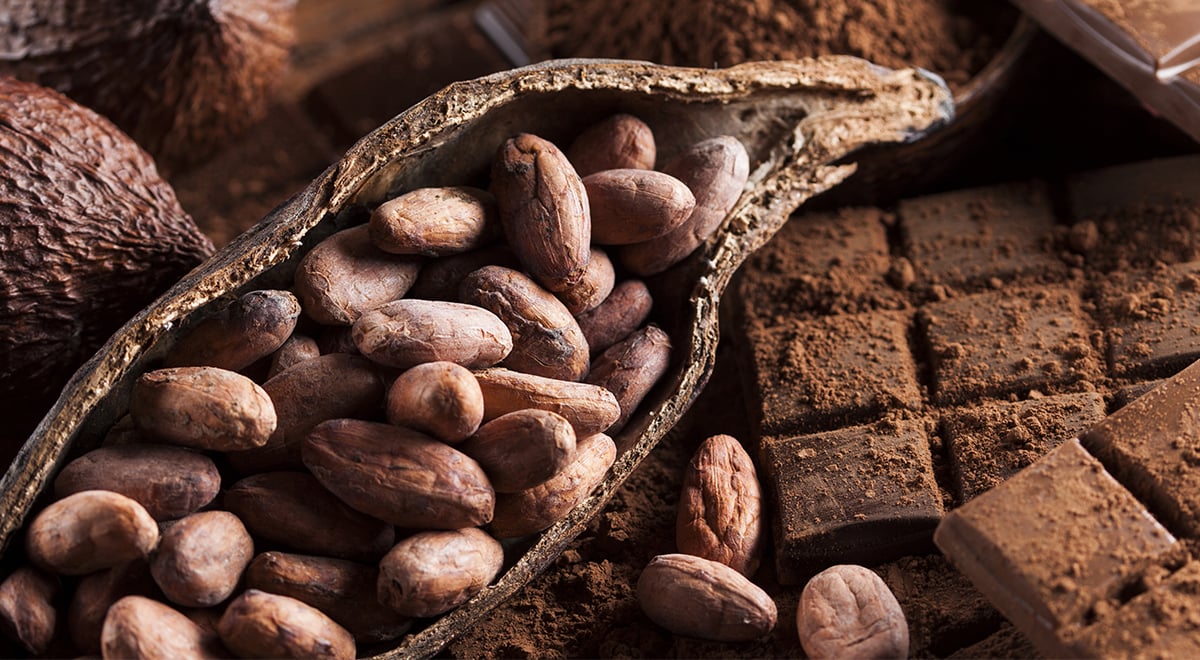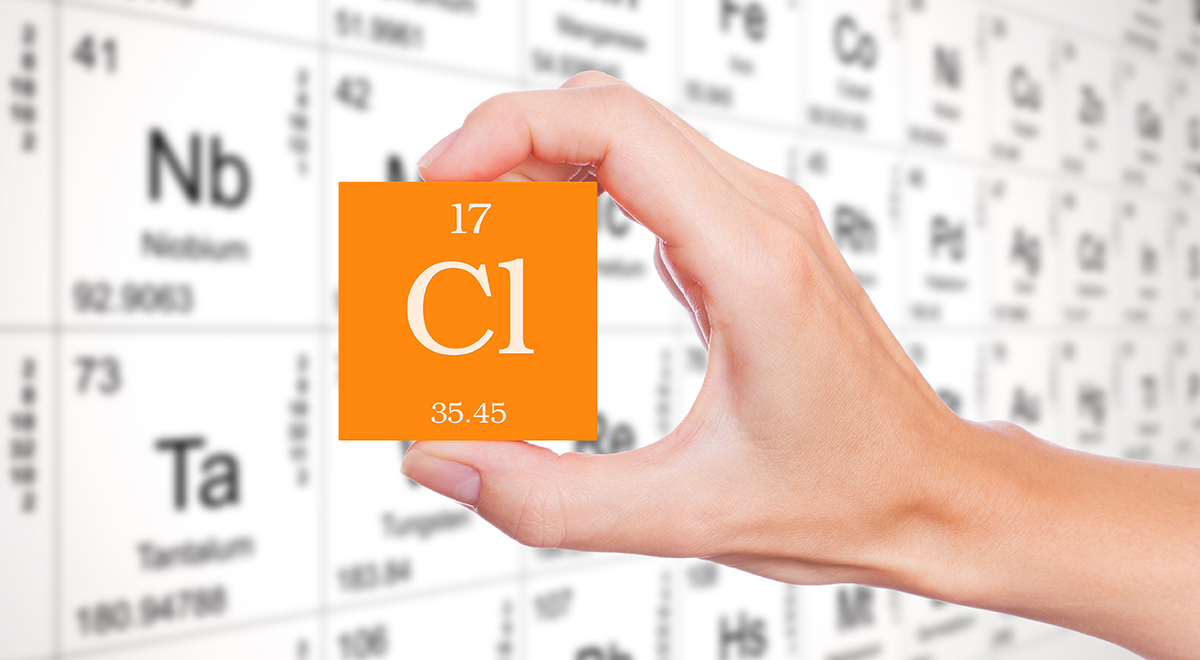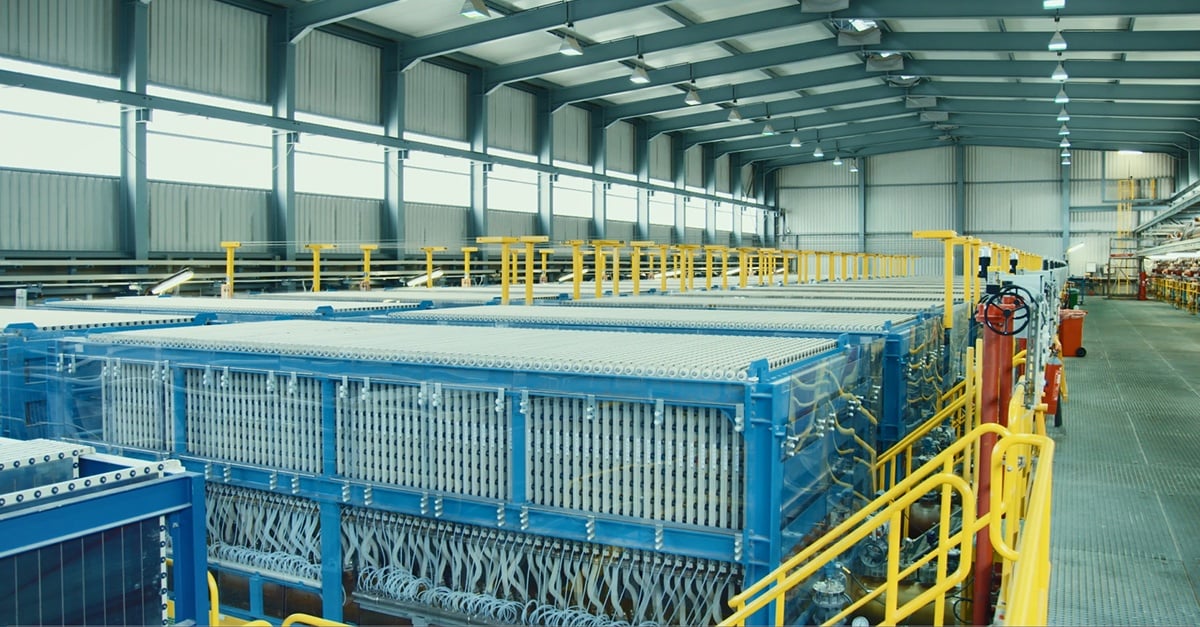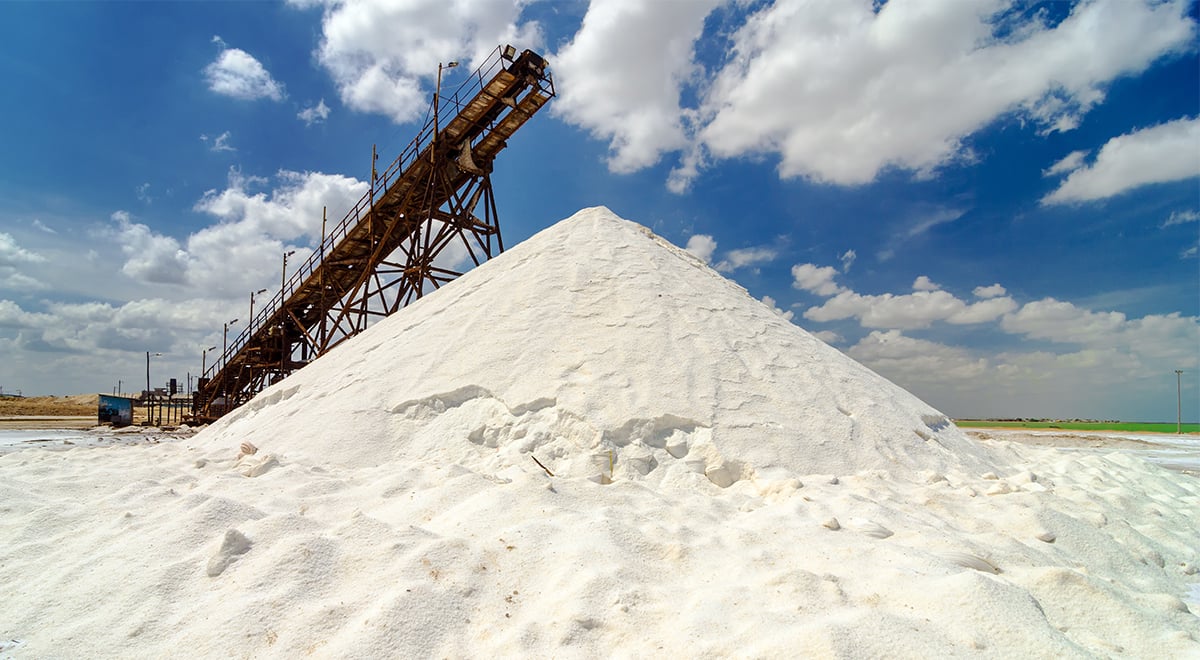The origins of chocolate stretch back to the 18th century when a Swedish botanist, Carolus Linnaeus, gave the cocoa tree its Greek name Theobroma Cacao, which means “food of the Gods.” However, it was during the 19th century that many of the innovations and improvements in chocolate production were developed. The first conche (a machine, used during the manufacture of chocolate, which mixes and smooths the chocolate mass) was developed in 1879 by Rudolph Lindt. Daniel Peter found a way to blend milk into chocolate in 1876, and Casparus Van Houten created the cocoa press in 1828. But one of the most significant developments was the introduction of alkaline salts by Coenraad van Houten in 1828.
Chlorine is one of the most common chemical elements occurring in nature - even more common than carbon. It makes up 2.9% of the world’s oceans in the form of sodium chloride (salt). Chlorine’s high reactivity means that it almost never occurs on its own, but is instead always bound to another substance in compound form.
Ice and aircraft are a dangerous combination. On 17 November 2018, a passenger aircraft partially slid off the taxiway at Denver International airport. Fortunately, the plane was not moving too fast when it hit the ice, and none of the 85 passengers or 6 crew were injured. However, the incident highlights just how dangerous it can be for an aircraft to encounter ice on the runway.
The development of electrolysis as an industrial technology was a breakthrough for the commercial manufacturing of chemicals. Using this process to produce chlorine and caustic soda (NaOH, also called sodium hydroxide) or caustic potash (KOH, also known as potassium hydroxide) began late in the 19th century. Early technology involved the use of mercury cells, while newer membrane cell technology was developed in the 1960s.
Vynova is Europe’s leading supplier of potassium derivatives. We are the only supplier with two independent manufacturing facilities – in Tessenderlo (Belgium), and at our affiliated site of Potasse et Produits Chimiques (PPC) in Thann (France). Our state-of-the-art electrolysis process produces potassium hydroxide (KOH) in liquid form, which is then used as raw material for KOH solid as well as potassium carbonate (K2CO3).
VYNOVA BLOG
Our blog offers you insights into Vynova, our products, their applications and the innovations they enable.








